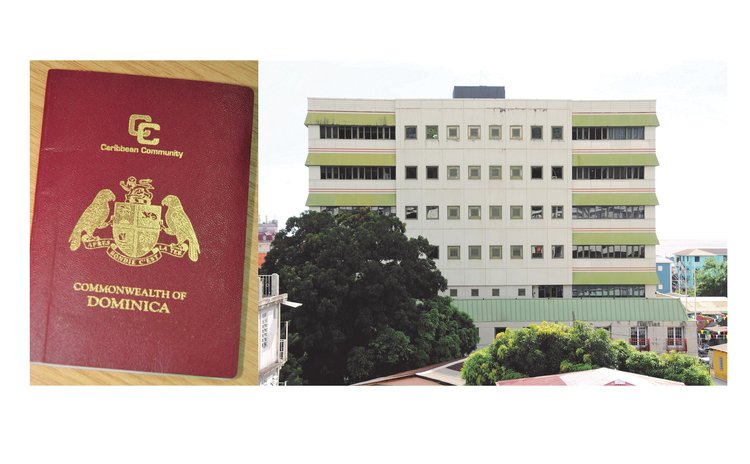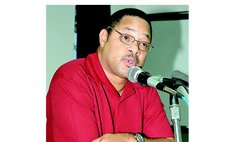Why Dominica needs a Commission of Inquiry into its Citizenship by Investment (CBI) programme

Dominica's current economic mono-crop, selling passports, is in deep trouble. When the programme inevitably crashes, all Dominicans will feel severe economic and social pain. There is no doubt about it.
Hence, Dominicans of all political stripes must unite to save the programme if there is still time.
However, even before such life-saving national cooperation begins to take shape, the Government of Dominica must agree to an independent inquiry into the Citizenship by Investment Programme (CBI) operations. Dominicans deserve the truth about the sale of their passports.
That inquiry is necessary because the allegations surrounding the CBI are shocking, and the government's responses have been highly unsatisfactory.
For instance, Lennox Linton of the United Workers Party (UWP) alleges that only $2.7 billion out of $9.1 billion from Dominica's CBI reached the island's treasury over the past seven years.
This claim highlights a significant discrepancy in the amount of money Dominica's treasury should have received from the programme. Linton also raised concerns about the majority of the money earned from the sale of citizenships not being in Dominica but being linked overseas under the control of Prime Minister Roosevelt Skerrit and his associates.
Linton's figure on the number of foreigners who acquired CBI) passports comes from his statement that the Dominica Labour Party (DLP) administration sold CBI passports to 43,000 aliens. These allegations form the basis of UWP's persistent and nagging campaign, "Where De Money," which continues to damage the credibility of the CBI programme and the integrity of Dominicans. International press and Dominica's CBI
But it is not only the opposition UWP making these allegations. Additionally, the Washington–based Organised Crime and Corruption Reports Project (OCCRP) raised significant concerns about the CBI programme, highlighting discrepancies in the number of passports issued and the programme's lack of transparency. The investigation revealed that while Dominica reported issuing 34,500 passports through its CBI programme, the Official Gazette only listed 7,700 names from 2007 to 2022, raising questions about the accuracy of the figures provided by the government.
Additionally, the naturalisation fees collected by Dominica suggested that more than 19,000 new citizens were accounted for in the national budgets from mid-2016 to mid-2022, further indicating a need for more transparency and potential discrepancies in reporting.
The European Union (EU) has expressed concerns about the low rejection rate of passports from Dominica and the short processing times, which raise doubts about the thoroughness of security screening in the CBI programme.
The government of Dominica responded to the OCCRP report by refusing to answer questions posed by the investigative team. Despite detailed inquiries, the government did not provide answers. Instead, it held a press conference where Prime Minister Roosevelt Skerrit criticised the report without evidence, accusing international journalists of being part of an opposition-funded attack to undermine the passport programme. Elsewhere, Prime Minister Skerrit has responded to these severe allegations by highlighting the CBI's benefits to Dominica's social and economic projects, especially after Category Five Hurricane Maria devastated the country in 2017.
Emphasising what the CBI has done Mr. Skerrit has responded to stories in the international press by touting the programme's unparalleled benefits and positive impacts on the country. During a recent press conference, he emphasised the significant advantages provided by the CBI programme to Dominican citizens, surpassing those of any other country worldwide. Skerrit highlighted visible transformations in Dominican communities, such as the construction of homes, new water systems, and strategic investments in various sectors like manufacturing, agriculture, and small businesses. Additionally, the Prime Minister disclosed that the CBI programme has facilitated affordable housing, lifted individuals out of poverty, and provided substantial financial assistance to citizens post-hurricane events. Noteworthy developments, the government says, include progress on the international airport project, excellent healthcare infrastructure, and the design of an efficient electricity transmission network to harness geothermal energy for sustainable electricity.
Moreover, the government of Dominica says that to satisfy its critics, it has introduced new regulations to strengthen the CBI programme, focusing on due diligence, integrity, and transparency. These regulations include stricter requirements for authorised agents, mandatory interviews for applicants and dependents, and limitations on name changes. The government aims to ensure compliance with rules and responsible management of CBI funds.
However, the government has not provided figures to dispute the allegations of the misappropriation of billions of dollars, which Mr. Skerrit said is a lot of money in any language.
A public inquiry can help ensure transparency, accountability, and the proper functioning of CBI programmes by addressing policy questions and issues related to the selling of citizenship.
It will also help restore public confidence, given the serious allegations and concerns raised by the UWP and the foreign journalists.




